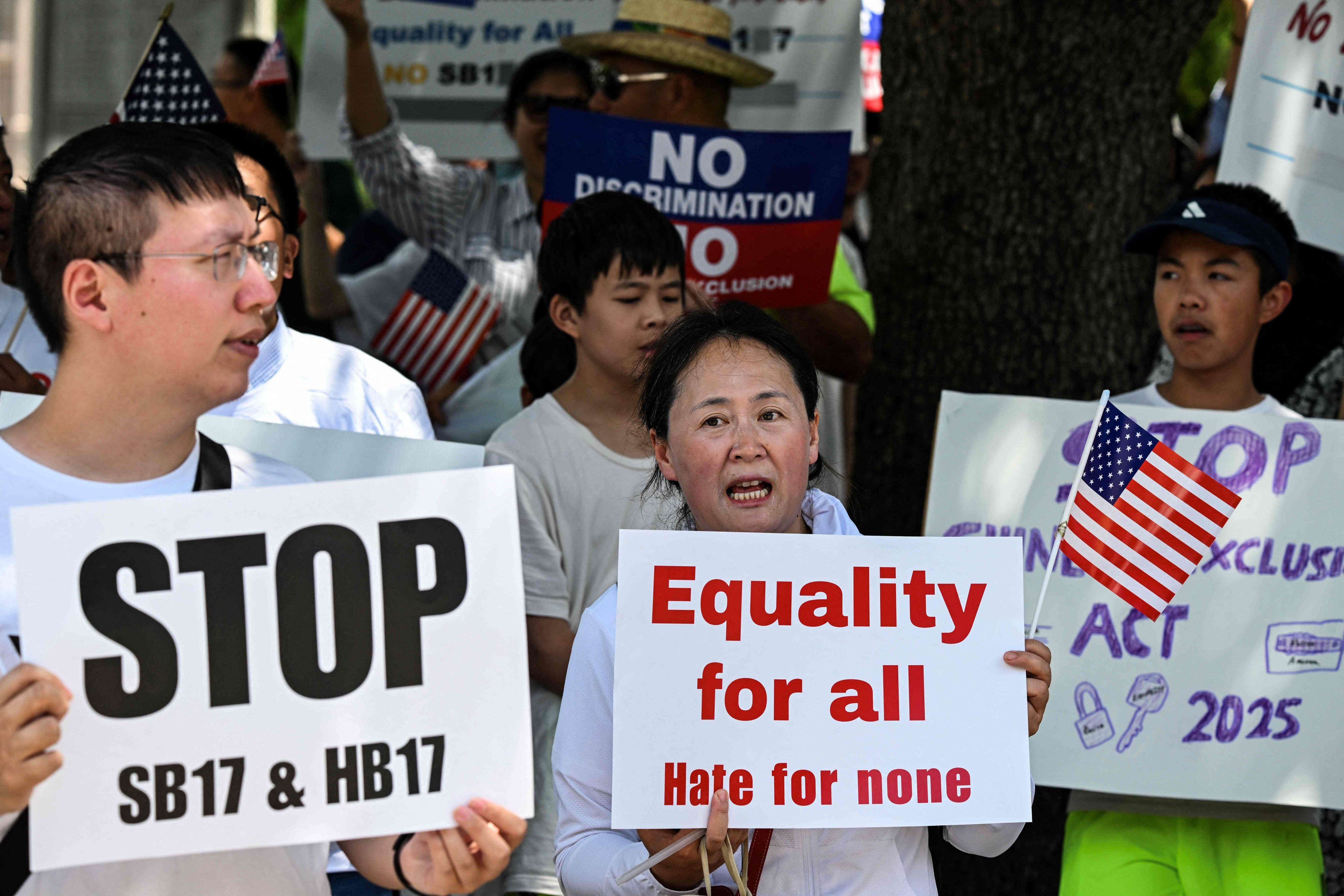Texas Governor Signs Bill Banning Chinese Citizens From Buying Property In The State

A bill to restrict property ownership in Texas by Chinese citizens became law, more than two years after it was first introduced, setting up what could be a prolonged legal and political battle as critics plan to file a suit challenging its constitutionality.
Governor Greg Abbott, a Republican, announced on Saturday that he had signed the bill, which also targets nationals from Iran, North Korea and Russia, into law.
Abbott expressed support for the bill in February, writing on social media that the legislation “would prohibit hostile foreign entities from purchasing land in Texas, and that “we must get this to my desk this session”.
The bill restricts individuals, companies, and government entities from China and the other named countries from purchasing property in the state, exempting US green card holders and citizens. It takes effect on September 1.
The initiative allows those who hold valid US visas to purchase property, but only if the property is used as a primary residence. That means nationals from the four countries would not be able to purchase investment properties.

According to a 2023 US Department of Agriculture report, Chinese individuals or businesses own about 277,336 acres of US land (1,122 square kilometres) – less than 1 per cent of total foreign-held acreage – with none directly registered to the Chinese government.
At 123,708 acres, Texas accounts for about 45 per cent of Chinese-held land – the largest share of any US state.
Proponents of the legislation, known as SB17, say it is crucial to protect Texans from influence by foreign “adversaries” like China before their land ownership becomes more widespread.
“For three years, I’ve worked to pass a bill to protect our land, homes, commercial buildings, water, timber, oil and gas and rare earth materials from being bought up by foreign adversarial nations like China, Russia, North Korea and Iran,” said the bill’s author Lois Kolkhorst, a Republican state representative, in a social media post on May 30.
Kolkhorst first proposed the legislation to limit land and other real estate purchases by citizens and entities from the same group of countries in late 2022, in preparation for the 2023 legislative session, but it died after backlash in the state. In its original form, the bill did not exempt green card holders.
The 2023 effort led to a surge of activism in Texas, home to an estimated 1.5 million Asian-Americans.
Critics, including many Democratic representatives and Asian-American groups, have denounced the bill as xenophobic and discriminatory, arguing that it would unfairly subject Chinese-Americans and Asian-Americans to extra scrutiny.
“Imagine that you’re a landlord in Texas, and you hear that renting property to Chinese nationals is prohibited. To stay on the safe side, you decide not to rent to anyone who appears Chinese to you,” said Bethany Li, executive director of the New York-based Asian American Legal Defense and Education Fund.
“The result? Asian Americans get excluded from housing opportunities simply because of how they look or where people assume they’re from.”
Alice Yi, co-founder of Asian Texans for Justice, told the Post that some Asian-American organisations are planning to support a suit against the law, similar to one launched in Florida.
In Florida, a federal appeal court has taken up a lawsuit by four Chinese immigrants against a law that restricts citizens of China, Cuba, Iran, North Korea, Russia, Syria and Venezuela from owning property – so far approving temporary relief for two of the plaintiffs.
In a 2023 letter to a Florida district court, the US Department of Justice said the law violates the federal Fair Housing Act and the Equal Protection Clause of the US Constitution’s 14th Amendment.
According to the New York-based Committee of 100, a group of prominent Chinese-Americans, 63 bills restricting foreign property ownership, some of them explicitly targeting Chinese citizens, were under consideration in 15 US states as of June 16.
Earlier this month, a Republican-led legal effort to restrict Chinese entities from owning land failed in Arizona.
That bill, watered down from its original version, would have prohibited the Chinese government and wholly state-owned enterprises from purchasing property in the state.
Arizona Governor Katie Hobbs, a Democrat, vetoed the bill, saying that it would be “ineffective at counter-espionage” and could open the door to arbitrary enforcement.
Federal efforts to restrict Chinese property ownership are also under way.
On June 6, Representative John Moolenaar, the Michigan Republican who chairs the House Select Committee on the Chinese Communist Party, wrote in The Wall Street Journal that the US needed to pass federal legislation to limit such purchases, citing the potential for Beijing to use American land for “spying, signal interference or, if conflict erupts, autonomous weapons attacks”.
Last month, US Secretary of Agriculture Brooke Rollins told the House Appropriations Committee that her department was working on a federal plan to curb Chinese access to US land.
Popular Products
-
 Portable Car Jump Starter Booster - 2...
Portable Car Jump Starter Booster - 2...$261.99$182.78 -
 Foldable Car Trunk Multi-Compartment ...
Foldable Car Trunk Multi-Compartment ...$257.99$179.78 -
 Mommy Diaper Backpack with Stroller O...
Mommy Diaper Backpack with Stroller O...$106.99$73.78 -
 Ai Dash Cam with Front & Rear HD, GPS...
Ai Dash Cam with Front & Rear HD, GPS...$304.99$212.78 -
 Smart Auto-Recharge Robot Vacuum Cleaner
Smart Auto-Recharge Robot Vacuum Cleaner$472.99$306.78